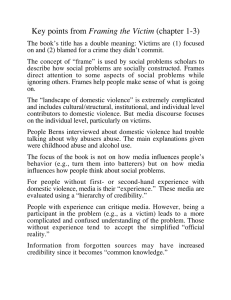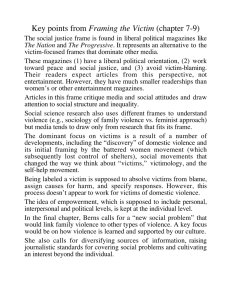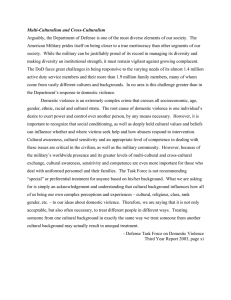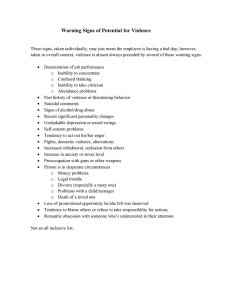Recovering from Intimate Partner Violence
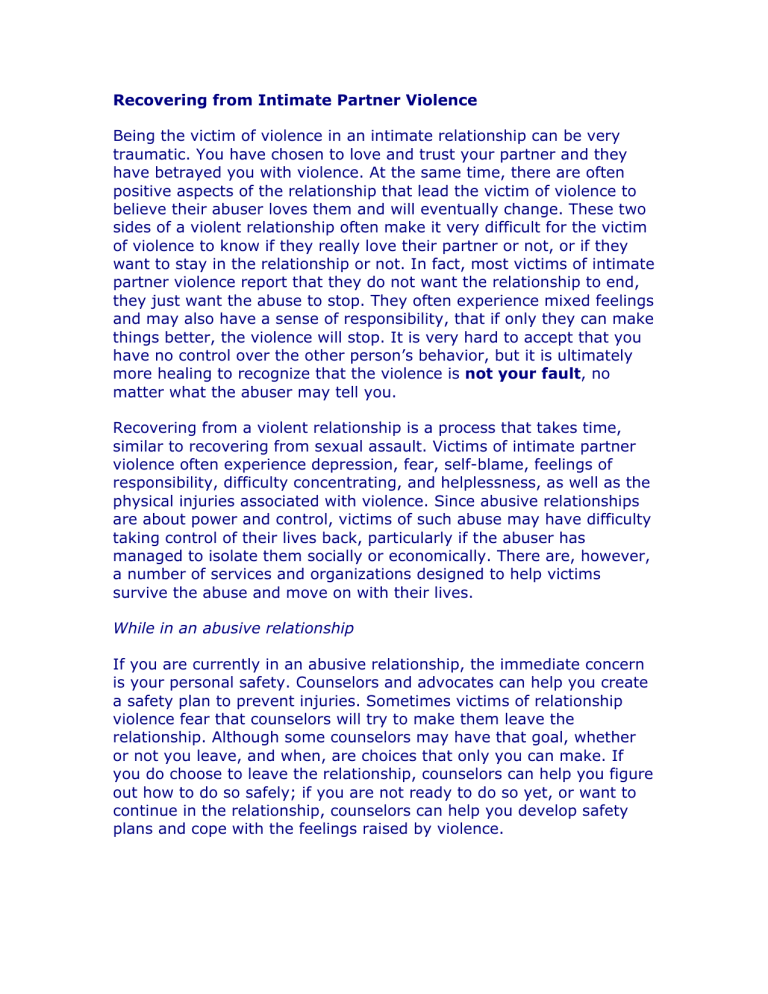
Recovering from Intimate Partner Violence
Being the victim of violence in an intimate relationship can be very traumatic. You have chosen to love and trust your partner and they have betrayed you with violence. At the same time, there are often positive aspects of the relationship that lead the victim of violence to believe their abuser loves them and will eventually change. These two sides of a violent relationship often make it very difficult for the victim of violence to know if they really love their partner or not, or if they want to stay in the relationship or not. In fact, most victims of intimate partner violence report that they do not want the relationship to end, they just want the abuse to stop. They often experience mixed feelings and may also have a sense of responsibility, that if only they can make things better, the violence will stop. It is very hard to accept that you have no control over the other person’s behavior, but it is ultimately more healing to recognize that the violence is not your fault, no matter what the abuser may tell you.
Recovering from a violent relationship is a process that takes time, similar to recovering from sexual assault. Victims of intimate partner violence often experience depression, fear, self-blame, feelings of responsibility, difficulty concentrating, and helplessness, as well as the physical injuries associated with violence. Since abusive relationships are about power and control, victims of such abuse may have difficulty taking control of their lives back, particularly if the abuser has managed to isolate them socially or economically. There are, however, a number of services and organizations designed to help victims survive the abuse and move on with their lives.
While in an abusive relationship
If you are currently in an abusive relationship, the immediate concern is your personal safety. Counselors and advocates can help you create a safety plan to prevent injuries. Sometimes victims of relationship violence fear that counselors will try to make them leave the relationship. Although some counselors may have that goal, whether or not you leave, and when, are choices that only you can make. If you do choose to leave the relationship, counselors can help you figure out how to do so safely; if you are not ready to do so yet, or want to continue in the relationship, counselors can help you develop safety plans and cope with the feelings raised by violence.
Immediately after leaving
One of the biggest fears victims of relationship violence have about leaving is that their partner will come after them and hurt them even more. This is a valid fear, as violence does tend to escalate when the victim leaves. Because of this, it is important to develop a safety plan with the help of friends, family members, counselors, and the police.
Although you do not have to talk to the police unless you want to, they can be helpful in obtaining restraining orders and protecting your safety.
Besides personal safety, survivors of intimate partner violence have to deal with emotional reactions to having been physically, emotionally, and/or sexually abused by a loved one. As mentioned above, it is common to experience depression, feelings of helplessness and rage, hopelessness, self-blame, and fear. Support from friends, family members, and often counselors or therapists can help you in your recovery. Shelters are also available to help you get back on your feet, and are especially important if you were economically dependent on your partner. There are a number of shelters in the Santa Cruz area that are free of charge, most of which accept children as well.
Unfortunately, most shelters do not provide residential services for male victims of domestic violence, but most will provide assistance in finding a safe place and accessing other resources. In addition, Santa
Cruz County Victim/Witness Assistance Program can assist you financially and with obtaining other services.
Long-term recovery
Survivors of intimate partner violence can and do recover and are able to live happy, fulfilling lives, in which they are safe from violence and abuse. Recovery is a process, however, and the length of time varies for different people. As with immediate recovery, ongoing counseling or therapy can be extremely helpful. Sexual violence is often a part of intimate partner violence and counseling can also be extremely helpful in recovering from that trauma as well. Many survivors of intimate partner violence experience difficulty in trusting intimate relationships again, and long-term recovery may focus on that issue as well. Some survivors also find it healing to get involved in programs such as
Defensa de Mujeres-Women’s Crisis Support, or training to be an advocate at programs such as the Santa Cruz Commission for the
Prevention of Violence against Women.
What can I do?
If you are currently, or have been, abused by your partner, or think you might be, it is important that you talk to someone. There are a number of services available on campus for Cabrillo students, staff and faculty, including The Student Health Center and Cabrillo Counseling
Services. These offices are staffed with people who are sensitive to the issues in both opposite-sex and same-sex intimate partner violence and can help you both to recover from the abusive relationship and to find other services and assistance you might need.
